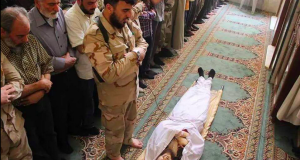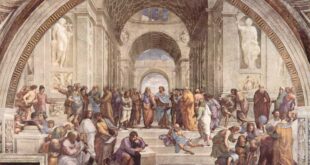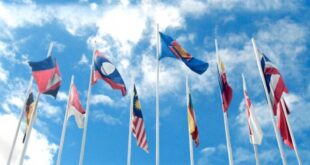In the Damascus suburban quarter of the Assad Quarter, Assad forces succeeded in mounting a successful counterattack to repel a operation by Jaish Al Islam of Zahran Aloush. Few days later, in September 16, the deputy of Aloush, was killed. This was coupled with a chain of assassinations which targeted leaders of armed opposition groups.
The regime also waged during the second and third weeks of September a particularly intense barrel bomb attacks against Doma, Deraa, and several other targets in a wave of ground attacks on opposition positions south and east of Damascus, Quneitra, and Aleppo.
Without going into much details, it may be sufficient to say that there are signs that Assad forces received a psychological boost by Putin’s decision to boldly go to Syria. There have been also some reports, yet to be authenticated, that the Iranian Navy sent two brigades to Latakia, and other reports in Lebanese media which mentioned that the Quds Force Commander Qassem Suleimani paid Moscow another visit last month. If confirmed, that will be Suleimani’s second visit to Russia in one month.
All the while, the US State Department readout of Secretary John Kerry’s telephone conversation with Moscow’s Foreign Minister Sergei Lavrov in mid-September was particularly noticed by Syria’s opposition. “Secretary Kerry also reaffirmed the U.S. commitment to fight ISIL with a Coalition of more than 60 countries, of which Assad could never be a credible member, and emphasized the U.S. would welcome a constructive Russian role in counter-ISIL efforts. The Secretary stressed that there is no military solution to the overall conflict in Syria, which can only be resolved by a political transition away from Assad”, the readout said. Secretary Kerry explained later that the administration sees Russia’s step as either a risk that hinders the political solution or a contribution in fighting ISIL.
Yet, as explained repeatedly, framing the available options this way equals giving false choices. For it is possible to combine the regime, as such, with a good portion of the opposition in order to defeat ISIL. However, that requires to get rid of Assad who became the symbol of blood and destruction in the eyes of the majority of Syrians.
It was obvious that the US government, still without a clear and collective position on Putin’s move, is keeping the door opened to a Russian role in fighting ISIL and to a political settlement to the Syrian crisis. It is expected that the current debate within the Obama administration would be over in few days as President Putin is set to give his speech at the UN in the 26th of this month.
But the half way readout of Sec Kerry’s conversation with his Russian counterpart did not stop the Saudis from expressing their concern of Moscow’s move. Just after the conclusion of a meeting between GCC Foreign Ministers in Riyadh September 15, Saudi Foreign Minister Adel Al Jubeir said that all attempts to save Assad will eventually fail.
“If he (Assad) did not respond to political solutions, he will be forced out through military solutions. It is only a matter of time”, Al Jubeir said. “Russia’s presence (in Syria) is already known for some time. But the recent steps represent an escalation. Assad lost his legitimacy and there is no future for Syria while he is there”, he added.
In terms of Syria’s opposition, we saw a bold move by the civilian opposition to shape a political framework for a solution. A group of prominent Syrian politicians in exile gathered to chart a road map for a Syrian-Syrian dialogue that aims at reaching a solution to the crisis.
The group included Dr. Badr Jamous- the Royal Institute for Human Resources Development, Dr. Basma Qadamani – the Arab Reformation Initiative, Dr. Samir al Taqi –Orient Research Center, Dr. Muaiyyad al Rashid – the Royal Institute for Human Resources Development and Dr. Imad Eddine al Rashid – Outlook Center for Studies and Research.
The group, called Syria’s Alawi minority to a national dialogue “as a genuine component of our nation” and declared their allegiance to a “unified, diversified and peaceful homeland” and “a total rejection of any attempt to impose an external will on any Syrian”. These Syrian politicians in exile specified six principles for the future Syria they hope for-There are no merits to waiting for a salvation from the outside world, there is no place for Assad’s zero-sum games, and rejection of all plans aiming at the partition of Syria.
They called upon all sectarian, national or ethnic groups to join hands with them to “save the nation” through a national dialogue that excludes any and all foreign players to freeze the armed conflict and create the environment for the rise of a national peace keeping force and local governance bodies aiming to reconstruct a decentralized Syria all the while keeping the state institutions that are the backbone of the national state.
It is not clear yet if this effort will fly in the polarized and militarized situation on the ground. Yet, the effort is received positively by an increasing segment of Syrians as a glimmer of hope in a bleak situation.
While the some armed opposition groups showed interest in this new initiative, they, however, continued their debate about the UN envoy Stafan de Mistura’s effort to jumpstart some kind of political negotiations between the opposition and the regime. Ahrar Al Sham, for one example, expressed deep reservations. Ahlu Alhaq refused. And others are still debating the proposal.
Yet, the Syrian National Coalition succeeded in getting an impressive number of heads of groups to sign a communique announcing that they are ready to deal positively with the UN envoy’s proposal which was approved by the UN Security Council. That, in and by itself, does not mean that the debate within Syria’s opposition groups is settled. The hard-liner Jihadists said that they will not only oppose the proposal, but they will also fight those who accept it.
It is possible that the proposal of the UN envoy will end up to be a line of separation that passes the organizational limits to a more realistic and politically oriented camp verses a military-solution-only camp. Unless regional pressures are exerted on the hardliners to moderate their positions, it will be hard to expect that they may join the political track.
But regional pressure in the post-Putin move crisis is so far unreachable, as is obvious from Al Jubeir’s statement. The general mood among the Arabs and a good part of the Syrian opposition is that of open defiance. This is a reason of concern, as it is at this critical juncture that the path of future events will be determined. The intersection of Putin’s bold intervention and the efforts of de Mistura tells us that Moscow wanted indeed to keep a stake in the outcome of any political solution and position itself where it can keep its interests and shape future Syria. The problem is that this intervention might have derailed de Mistura’s plans altogether.
 Geostrategic Media Political Commentary, Analysis, Security, Defense
Geostrategic Media Political Commentary, Analysis, Security, Defense





